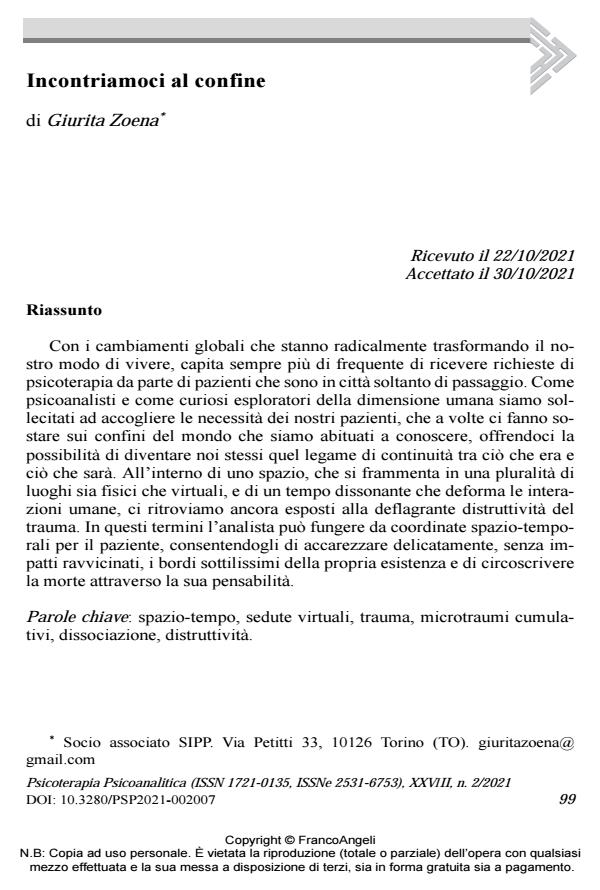Meet me on the border
Journal title PSICOTERAPIA PSICOANALITICA
Author/s Giurita Zoena
Publishing Year 2021 Issue 2021/2
Language Italian Pages 12 P. 99-110 File size 221 KB
DOI 10.3280/PSP2021-002007
DOI is like a bar code for intellectual property: to have more infomation
click here
Below, you can see the article first page
If you want to buy this article in PDF format, you can do it, following the instructions to buy download credits

FrancoAngeli is member of Publishers International Linking Association, Inc (PILA), a not-for-profit association which run the CrossRef service enabling links to and from online scholarly content.
With the global changes that are rapidly and entirely changing our ways of living, it happens more and more frequently to receive re-quests for psychotherapy from patients that are not actually living in the city but perhaps just passing by. As Psychoanalysts and curious explorers of the whole human dimension, we are demanded to wel-come the needs of our patients, that at times, let us wait on the edges of our known world, gifting us with the possibility to become ourselves that continuity bond from what it was and what it will be. Within a space breaking up in a plurality of virtual and physical places and a dissonant time that twists human interactions, we found ourselves once again exposed to the utter destructivity of trauma. This perspective gives the Analysts the possibility to act as space-time coor-dinates for patients, allowing them to light-touch, without impacts, the thin borders of their very own existence and to bound death through its thoughtfulness.
Keywords: spacetime, virtual sessions, trauma, cumulative microtrau-ma, dissociation, destructiveness.
Giurita Zoena, Incontriamoci al confine in "PSICOTERAPIA PSICOANALITICA" 2/2021, pp 99-110, DOI: 10.3280/PSP2021-002007